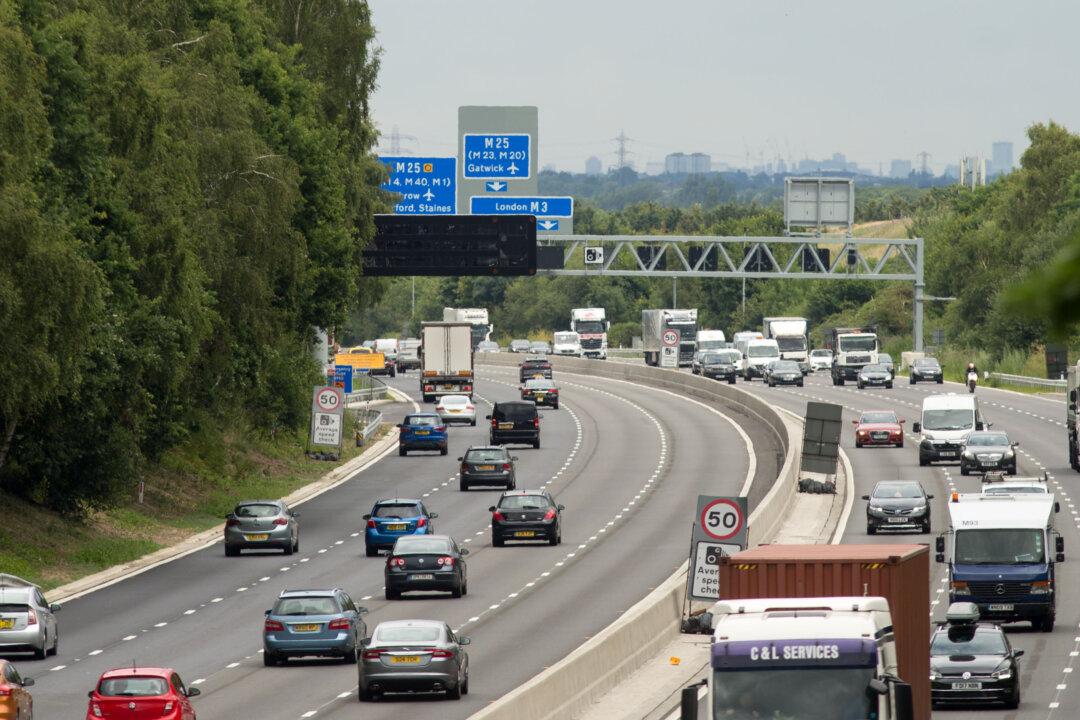The UK government has decided to scrap all plans for new “smart motorways,” citing financial pressures and safety concerns.
Fourteen planned smart motorways—including 11 that are already paused and 3 earmarked for construction—will be removed from the government’s road building plans, the Department for Transport (DfT) announced on Saturday.





